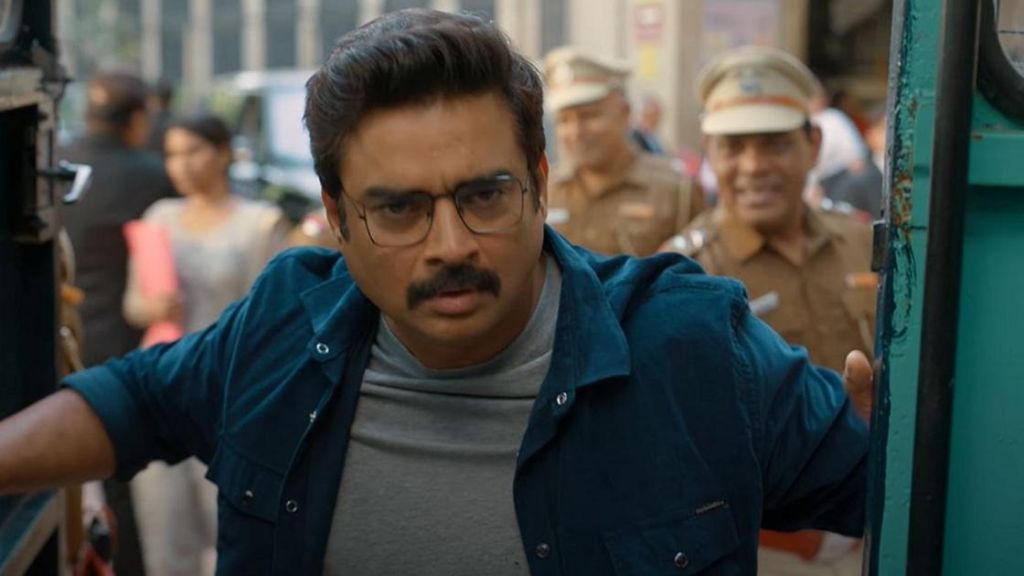
Title: Hisaab Barabar
Director: Ashwni Dhir
Cast: R. Madhavan, Neil Nitin Mukesh, Kirti Kulhari, Rashami Desai, Faisal Rashid
Where: In theatres near you
Rating: 3.5 Stars
Ashwni Dhir’s Hisaab Barabar is a cinematic cocktail that starts as a contemplative prelude, morphs into a sharp satire and finishes as an overzealous motivational tonic. The tonal transitions may lack finesse, but R. Madhavan’s riveting performance as Radhe Mohan Sharma ensures the narrative stays afloat, even as the film teeters on the brink of melodrama.
Radhe, a diligent railway ticket examiner, discovers a minor anomaly in his bank account. This innocuous error spirals into a labyrinthine financial scam orchestrated by the flamboyantly villainous banker, Micky Mehta (Neil Nitin Mukesh). While the premise is straightforward, Dhir’s screenplay amplifies its resonance by placing Radhe—a numbers-obsessed, morally unyielding everyman—in a David-versus-Goliath scenario. Madhavan imbues Radhe with quiet charm and an unrelenting sense of righteousness, offering the audience a protagonist who is both relatable and inspiring.
Neil Nitin Mukesh’s portrayal of Micky is a spectacle unto itself. As the smarmy, larger-than-life antagonist, Mukesh oscillates between cartoonish villainy and menacing flair, often chewing the scenery with gleeful abandon. While occasionally jarring, this exaggerated characterization adds a quirky dynamism to the film, contrasting sharply with Madhavan’s grounded performance. The interplay between these two diametrically opposed characters is a high point, even if some of their confrontations veer into the implausible.
Kirti Kulhari as Inspector Poonam Joshi is underutilized, her narrative arc diluted by an unnecessary romantic subplot that feels shoehorned into an otherwise taut story. Kulhari’s natural screen presence elevates her limited role, but the potential for a more nuanced exploration of her character remains unrealized. Rashami Desai as Monalisa offers sporadic comic relief, though her presence feels more ornamental than essential.
Dhir’s directorial approach, while largely commendable, falters in its attempt to juggle satire, suspense, and emotional drama. The transitions between these elements are not always seamless, and the film occasionally succumbs to the temptation of over-explaining its themes. For instance, the climactic shift into motivational overdrive feels more forced than a natural narrative progression, dampening the impact of the preceding subtle commentary on corruption and systemic injustice.
That said, the film deserves credit for refraining from overt preachiness. Its dialogues, sharp and unpretentious, effectively convey its core message: that even seemingly minor ethical compromises can snowball into significant moral failures. The film’s light-hearted approach to heavy themes is a double-edged sword—it keeps the story accessible but sometimes undermines its depth.
Beneath its uneven execution lies a sincere effort to highlight the struggles of the common man against systemic corruption. Madhavan’s layered performance adds emotional resonance, making the story’s message hit home.
Overall, this film is akin to an imperfect ledger—its calculations don’t always add up, but its intent is unmistakably honest. Despite its flaws, it’s worth giving this moral arithmetic a shot.